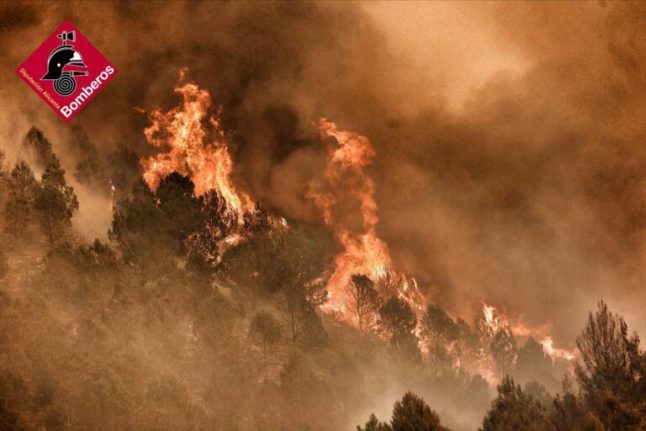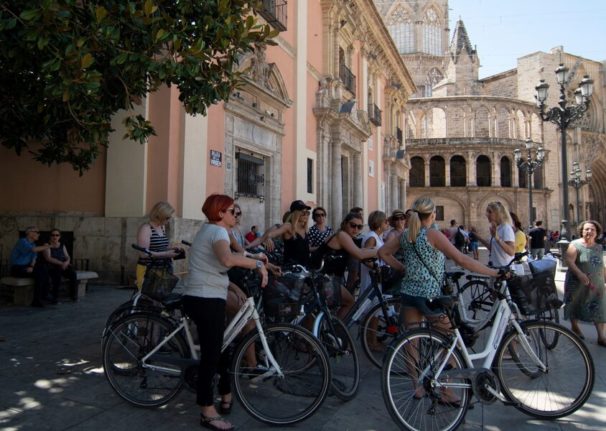The fire began on Sunday near Tárbena in the Valencia region (Alicante province) as temperatures reached 30 degrees Celcius (86 degrees Fahrenheit), which is unusually high for the season.
Heat, wind and low humidity fuelled the blaze which media reports said may have started with an agricultural fire.
“The fire is still active” after a “complicated” night for firefighters, the region’s emergency services wrote on X, the former Twitter, saying the blaze had destroyed “more than 500 hectares (1,235 acres)” of land.
Los medios aéreos, a lo largo de la mañana, han realizado numerosas descargas de agua y retardante para extinguir el #IFTàrbena.
📹Imágenes de algunos de los ocho medios, entre helicópteros, aviones anfibios y focas que están interviniendo. pic.twitter.com/OWLQL90WTU
— Emergències 112CV (@GVA112) April 15, 2024
“Around 180 people have been evacuated” from the two worst-hit areas, Pilar Bernabe, the central government representative in Valencia, told public television.
Eight air units battled the blaze alongside firefighters and troops from the UME military emergency unit which is called in to help with larger fires.
Durante el arco nocturno las unidades del #BIEM3 desplegadas en el #IFTárbena están realizando ataque directo 🚒 en cabeza flanco este del 🔥 #IIFF pic.twitter.com/Oxw4qrn4Ji
— UME (@UMEgob) April 14, 2024
According to the AEMET national weather service, temperatures rose above 30C in more than 65 areas across Spain on Saturday, including places as far north as the Pyrenees, Galicia and the Castilla y Leon region.
Tárbena is about 20 kilometres (12 miles) from the coast, near the coastal resort of Benidorm.
In 2022, some 500 wildfires destroyed huge more than 300,000 hectares of land in Spain, a record in Europe, according to the European Forest Fire Information System (EFFIS).
READ ALSO: Heat records for April already broken across Spain



 Please whitelist us to continue reading.
Please whitelist us to continue reading.
Member comments